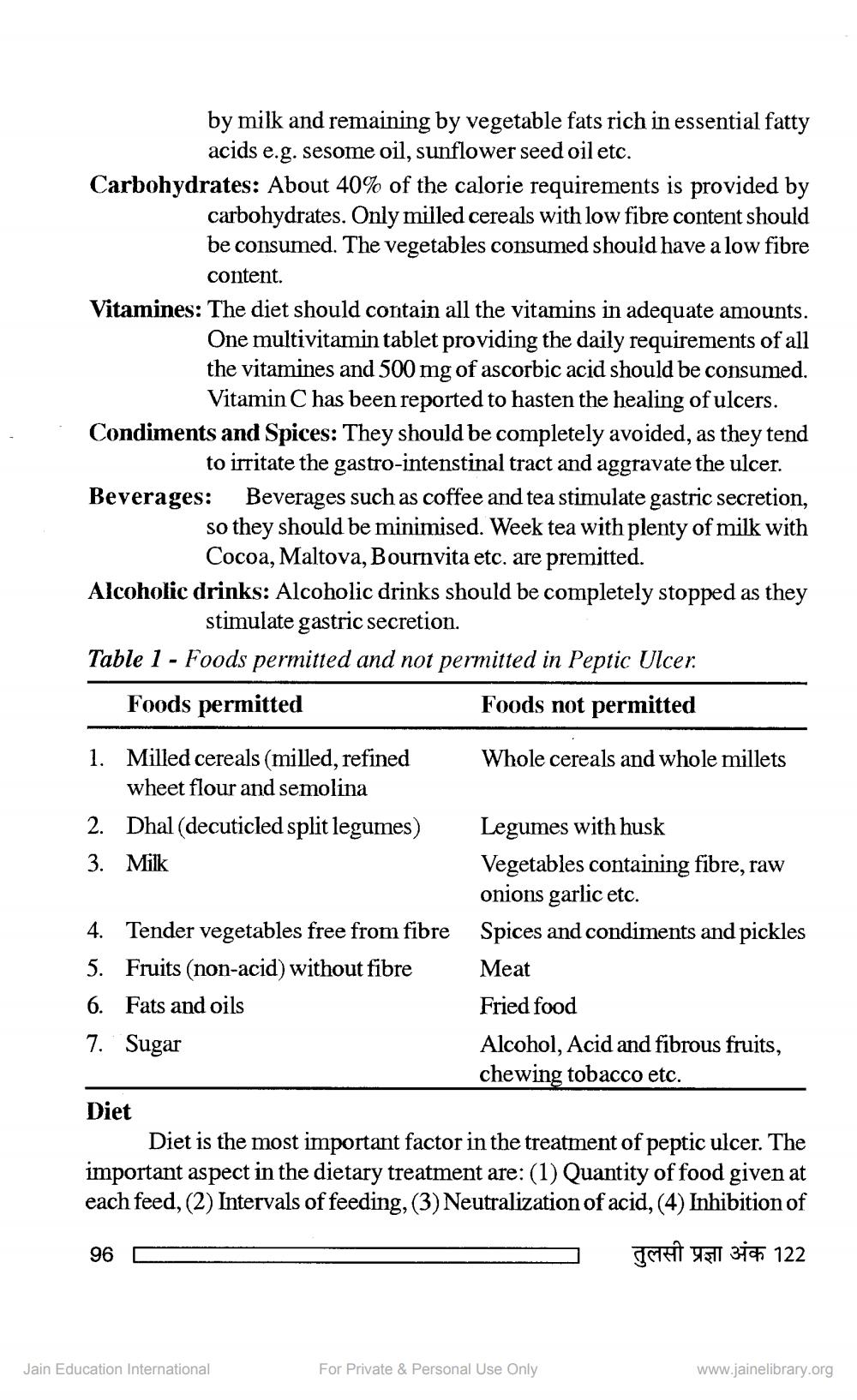________________
by milk and remaining by vegetable fats rich in essential fatty
acids e.g. sesome oil, sunflower seed oil etc. Carbohydrates: About 40% of the calorie requirements is provided by
carbohydrates. Only milled cereals with low fibre content should be consumed. The vegetables consumed should have a low fibre
content. Vitamines: The diet should contain all the vitamins in adequate amounts.
One multivitamin tablet providing the daily requirements of all the vitamines and 500 mg of ascorbic acid should be consumed.
Vitamin C has been reported to hasten the healing of ulcers. Condiments and Spices: They should be completely avoided, as they tend
to irritate the gastro-intenstinal tract and aggravate the ulcer. Beverages: Beverages such as coffee and tea stimulate gastric secretion,
so they should be minimised. Week tea with plenty of milk with
Cocoa, Maltova, Bournvita etc. are premitted. Alcoholic drinks: Alcoholic drinks should be completely stopped as they
stimulate gastric secretion. Table 1 - Foods permitted and not permitted in Peptic Ulcer. Foods permitted
Foods not permitted
1. Milled cereals (milled, refined Whole cereals and whole millets
wheet flour and semolina 2. Dhal (decuticled split legumes) Legumes with husk 3. Milk
Vegetables containing fibre, raw
onions garlic etc. 4. Tender vegetables free from fibre Spices and condiments and pickles 5. Fruits (non-acid) without fibre Meat 6. Fats and oils
Fried food 7. Sugar
Alcohol, Acid and fibrous fruits,
chewing tobacco etc. Diet
Diet is the most important factor in the treatment of peptic ulcer. The important aspect in the dietary treatment are: (1) Quantity of food given at each feed, (2) Intervals of feeding, (3) Neutralization of acid, (4) Inhibition of 96 D
Teet yll 3175 122
Jain Education International
For Private & Personal Use Only
www.jainelibrary.org




